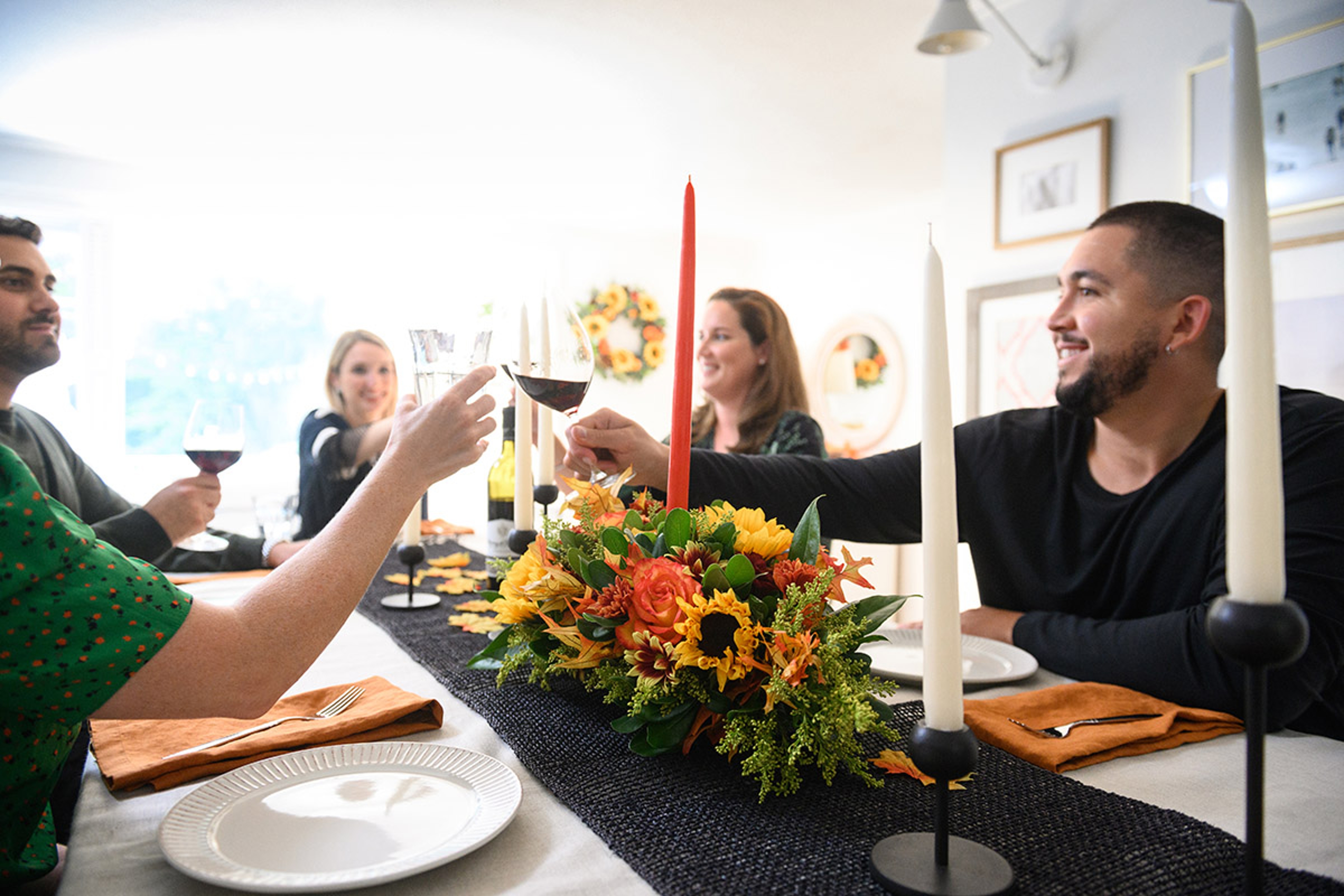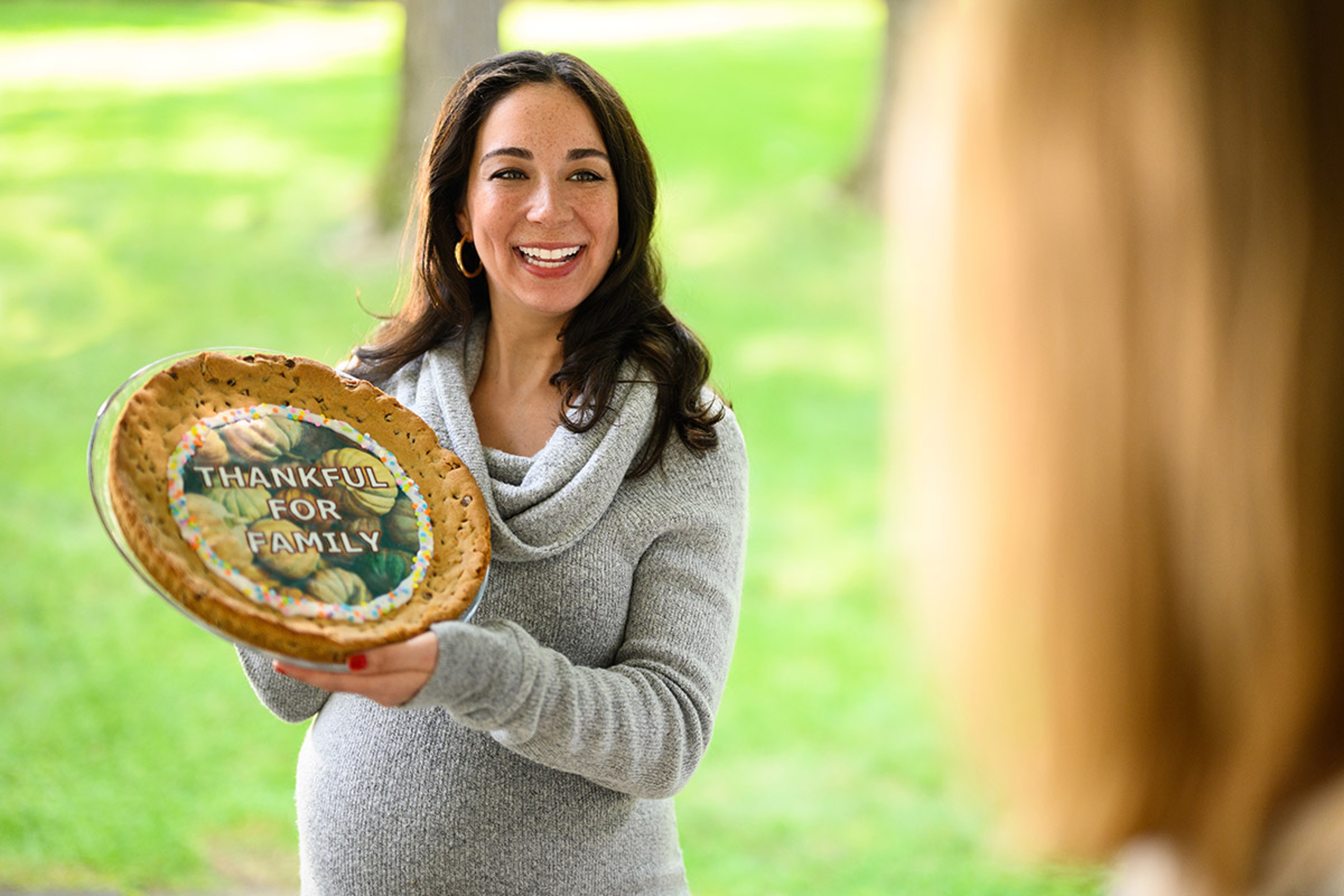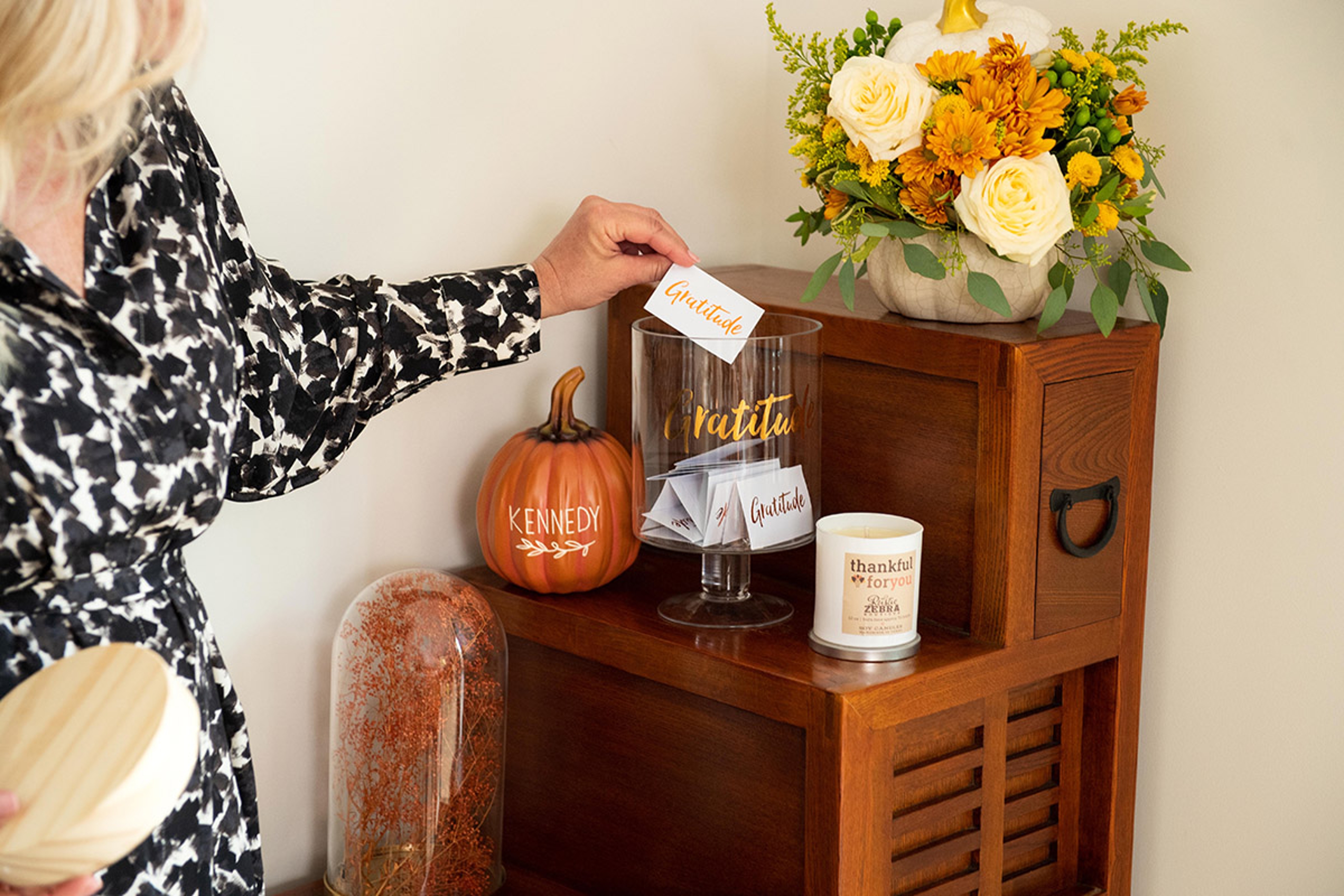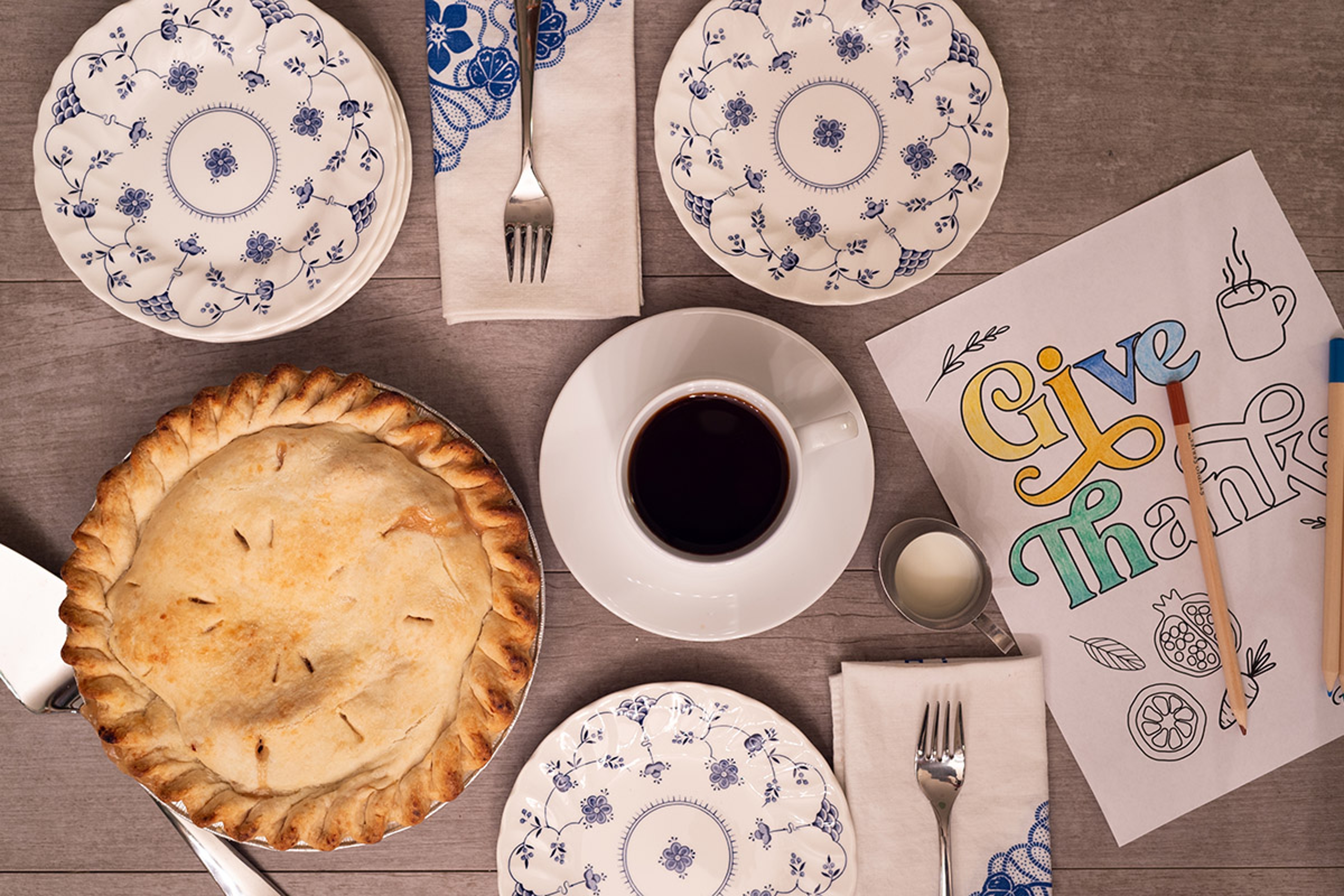The Power of Giving Thanks
Expressing gratitude in any number of ways can be healthy for the mind, body, and soul.
Oct 04, 2024
Any holiday can be joyful or hectic, a family drama or serene. But with Thanksgiving, there’s a different kind of stress, a sense of dull routine. “When it’s food, football, and parade,” says New York psychologist Karen Weinstein, “it’s easy to miss the thanks.”
Focus on thankfulness, and you may make the meal or weekend meaningful for you. That’s true year round. Even if it feels hokey, you may find you flourish with an “attitude of gratitude.” You’re not being shallow — you’re shifting your emphasis. “Gratitude helps counter our natural negativity basis, our brain's tendency to notice and hold on to the bad stuff over the good,” psychologist Ashley Smith explains.
When holidays are hard
For example, the fall food-fest may feel like the start of a stressful season of obligations, a time you’re supposed to be happy. Gratitude is an antidote. “Find pockets of goodness and sweetness,” Weinstein says. If that’s hard, “use a magnifying glass,” she adds.

Let’s say you get stuck in a packed airport with people sitting on their luggage. You can be annoyed at the chaos, and also grateful, when someone points out a chair and insists you take it. Be glad there’s a dispenser with hummus and carrots and you can eat healthily at 1 a.m. Like other skills, gratitude can be cultivated. As Weinstein puts it, “Exercise it like a muscle.”
What is gratitude, anyway?
The first step to feeling gratitude is to find and acknowledge those pockets of sweetness.
Next, recognize that you didn’t earn, deserve, or create them.
The insight might come as a great relief. The generous stranger in the airport doesn’t know if you are the perfect spouse, parent, or child. Blessings come.
Gratitude also invites us to think about a source. That could be God, if you’re a believer. Your gratitude could also flow to individuals, humanity, a pet or nature, or anything else. You might not be specific, but understand that goodness can come from outside you.
With practice, you may develop an ongoing sense that you are immersed in unconditional goodness. Some part of you always remembers that life is a gift.

Gratitude is good for you
Your body and mood will benefit. “Research demonstrates many positive benefits of a gratitude practice, from lower stress, anxiety, and depression to higher resilience, better health, improved sleep, stronger relationships, and, ultimately, more happiness,” Smith notes.
Smith faced an unusual challenge herself. Growing up in southern Arkansas, she began to have trouble seeing street signs as a teen. Author of the recently published "The Way, I See It: A Psychologist’s Guide to a Happier Life," she eventually learned that she was born with a rare condition that makes her legally, and now increasingly, blind. But it hasn’t stopped her, and gratitude has helped.The benefits of gratitude are especially well documented for heart disease, the leading cause of death among Americans. In one study, heart failure patients who kept a gratitude journal — noting every day for two months a few things for which they were grateful — had lower levels of inflammatory hormones that aggravate heart disease compared to a group who didn’t journal.

Gratitude is the ultimate mood booster. Twenty years ago, Martin Seligman, a founder of the field of positive psychology, asked a class of students to write and personally deliver a letter of gratitude. The response was so positive that he went on to a controlled experiment. When his volunteers did this, their happiness shot up and any signs of depression dropped for about a month. Gratitude letters were more powerful than any other happiness intervention he tried, he reported.
Smith proposes thinking of something you’re grateful for whenever you catch yourself worrying or focusing on the negative, the way you might pop a piece of gum when tempted to grab a cigarette or donut. Just be sure to acknowledge negative emotions like sadness and anger as well, she advises.
Gratitude is good for your relationships
Shyness or social anxiety can make you hold back from effusive thanks. Pushing through helps. We imagine the recipient of an earnest thank you note will feel awkward or judge our notes harshly. In fact, according to a series of experiments, when researchers contacted people who had received thank you notes, they were more likely to be surprised and pleased than the writers expected.

Being specific about what you appreciated increases the impact, which stays with you. A demonstration of gratitude in a couple makes both sides feel closer the next day. During spells of unproductive arguments or financial strain, you can limit the damage if you ensure your partner feels your gratitude, a 16-month study found. In other research, mothers were less stressed about parenting when older children showed gratitude. Did your mother drive you to basketball practice all throughout your team’s championship-winning season? Write her a handwritten note and leave it beside her favorite bouquet to show her how much you appreciate her!
Cultivating and expressing gratitude
To build your own gratitude muscle, consider any of these steps.
1. Keep a gratitude journal
You might jot down a few things each night or in the morning, or make it a Sunday ritual.

Think about why you are grateful for each thing and why it happened to you, even if you can’t think of a good reason. Allow yourself to feel other emotions, such as sorrow or guilt, but always come back to gratitude. Think about how you can “pay it forward.” Even when you don’t have emotional energy or time for each step, write down those blessings in a journal. Weinstein notes that some people end up feeling they “didn’t do it right,” because they don’t feel better. That’s a signal, perhaps, to talk to friends, family, or a professional about your overall outlook.
2. Capture your gratitude in a photo
If you’re visual rather than inclined to writing, Smith suggests snapping a daily picture of something you appreciate or find beautiful.
3. Keep a gratitude jar with notes
“At the end of the year (or when you're having a rough day), you can pull out the slips of paper and reminisce,” Weinstein says.

4. Say “thank you” — and mean it
Acknowledge other people’s acts of courteousness with sincere expressions of gratitude.
5. Find the right words to verbally express your gratitude
Using phrases like “I appreciate you” may feel more natural over time. Texts are a start, but saying it in person or over the phone is better.
6. Accentuate the positive
When you complain, make sure to wrap up by focusing on the good in people or making the best of the situation. “Well, she made me furious, but she’s a loyal friend and I’m grateful for that.”
7. Write a gratitude letter
For tips, see the examples here.
To a friend, you might write:
Dear [friend’s first name]
Friends like you come along once in a lifetime.
I just want you to know how much I appreciate you and your friendship. Whenever I see something that makes me laugh, I want you to be the first to know. It’s wonderful to know that you care enough to stick by my side through the good times and the bad.
You will always be close to my heart!
Cultivating gratitude in families
Share your daily bright spots or what you appreciate about each other around the dinner table or any time your loved ones are together.
For some families, this is a Thanksgiving ritual. “A lot of people roll their eyes about [this ritual], but it's a solid way to do it,” Smith says.
You can build gratitude into other holidays as well. Smith suggests “a special holiday twist, like writing a letter of gratitude to a family member and sharing it with them or modifying Secret Santa to be Secret Gratitude. Write down something you appreciate about each family member and drop it in their bucket, bowl, or jar. Then each person can open and read what others appreciate about them, either as a group or on their own. Get creative!”
Don’t be afraid to start a new tradition. Weinstein doesn’t ordinarily do a Thanksgiving go-round, but when it happened last year, she was pleased. “We had lots of young people, and it was really interesting and sweet to hear what they had to say.” she says. “It enriched the evening.”










